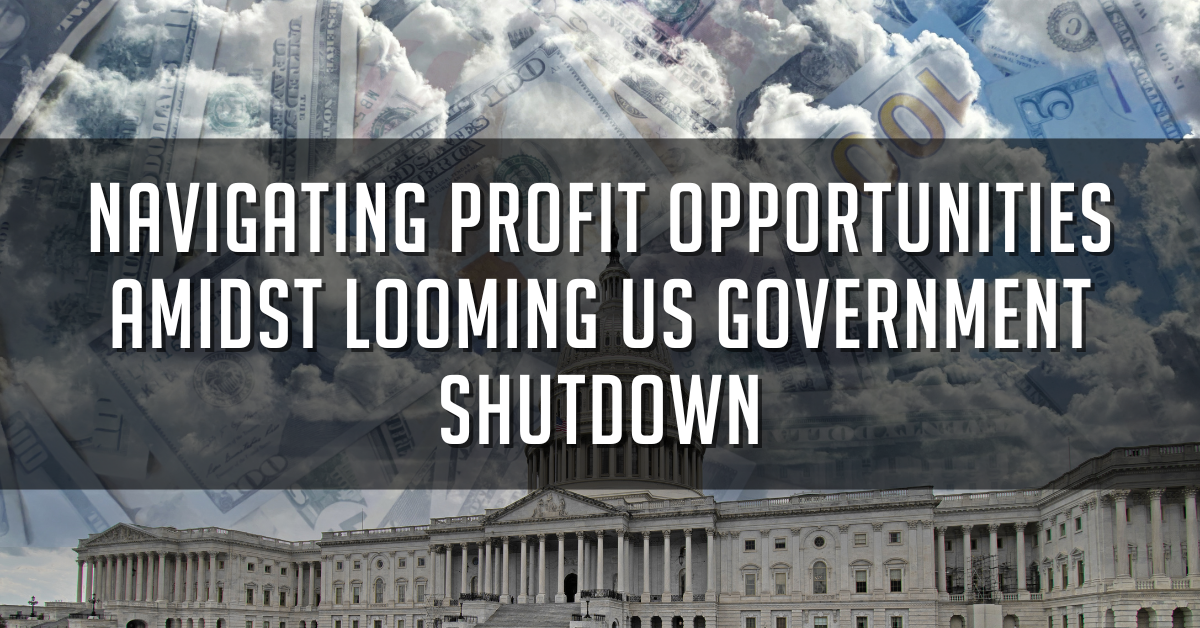The eyes of traders remain vigilantly fixed on the unfolding budget resolution drama in the heart of Washington. As the weekend waned, lawmakers exhibited scant signs of progress toward a deal that would secure funding for the US government throughout the remainder of the fiscal year.
The precipice of a US federal government shutdown looms large, poised to unleash significant disruptions to vital services, send shockwaves through the workforce, and plunge the political sphere into turmoil. On one side of the congressional divide, House Republicans, propelled by unyielding demands for substantial budget cuts, are propelling a standoff over federal expenditures.
Amidst the pending tumult, some government functions, such as the disbursement of Social Security checks, will remain exempt. Nevertheless, a vast array of essential activities will be profoundly curtailed. Federal agencies will grind to a halt in the absence of funding, exacting repercussions that extend to the pay checks of millions of federal employees, encompassing military personnel.
A government shutdown eventuates when Congress falters to pass funding legislation, legislation that must bear the presidential signature to become law. The budgetary intricacies necessitate the passage of a dozen distinct spending bills to infuse financial support into government agencies, a protracted process prone to delays. The contingency plan often involves the approval of a temporary extension, popularly referred to as a continuing resolution (CR), as an interim lifeline to sustain government operations.
In the unfortunate eventuality of unadopted funding legislation, federal agencies are compelled to suspend all non-essential undertakings, while the wages of their employees are temporarily withheld. Consequently, a substantial proportion of federal workers, including an estimated 2 million military personnel and over 2 million civilian employees scattered across the nation, would confront deferred compensation during a government shutdown.
A noteworthy fraction, nearly 60%, of federal workers are embedded within the Defence, Veterans Affairs, and Homeland Security departments. In the throes of a shutdown, certain federal offices may be compelled to shutter their doors or function with reduced operational hours.
The scenario is unfolding against a backdrop of a challenging month for the stock market. Heightened anticipation of prolonged higher interest rates, propelled by the Federal Reserve's signalling, has propelled bond yields upward. Over the course of this month, the benchmark 10-year Treasury yield has surged by over 30 basis points, reaching 4.43%. Furthermore, the market contends with an ascendant crude oil rally and a resurgent dollar, all transpiring during the seasonally vulnerable trading month.
The ramifications have reverberated across equities, with the S&P 500 undergoing a 4.2% slump this month, poised for its second consecutive month in the red and its most adverse month since December. The tech-centric Nasdaq Composite also bears the brunt of the selloff, enduring a 5.9% decline in September, and stands to incur its most substantial monthly loss since December.
In the realm of investments, the prospect of a government shutdown may cast a favourable sheen upon gold. Historically, gold assumes the role of a safe-haven asset during periods marked by economic and political turmoil, beckoning investors seeking shelter against inflationary pressures. Consequently, in the event of a government shutdown stirring heightened market unpredictability and insecurity, it is plausible that demand for gold will surge, propelling its market value to greater heights.
This financial narrative has unfolded before. During the 2013 government shutdown, gold prices initially experienced an uptick as investors turned to this haven in response to mounting uncertainty. A similar script played out during the 2018-2019 government shutdown, with gold prices again responding favourably to the prevailing economic and political volatility.
Fullerton Markets Research Team
Your Committed Trading Partner


 Navigating Profit Opportunities Amidst Looming US Government Shutdown">
Navigating Profit Opportunities Amidst Looming US Government Shutdown">








